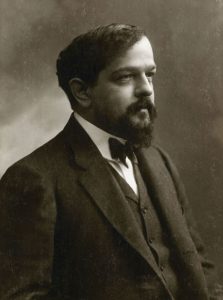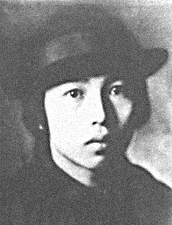About “Il pleure dans Mon Coeur”
It rains since yesterday in Tokyo in July 2nd.
Japanese long rainy days are called 梅雨 (“Tsuyu” or “Baiu”) and people is bothered with moist and dark days. Tsuyu has not gone yet.
This time I will introduce you the song “Il pleure dans Mon Coeur” composed by C. Debbusy which is sunged at the “Midsummer Concert” on July 25th.
Introduction of lyricist and composer
Paul Verlaine (Lyricist)

Paul Verlaine (1844-1896) is one of a French symbolist poets were active at the end of the 19th century.
Symbolism is a movement that seeks to symbolize the inner world, which has arisen as a reaction to naturalism and the Parnassianism.
Naturalism is a movement that observes events, finds the truth, and reproduces it. And the Parnassianism is a faction that arises as a reaction to the Romantics and rather uses objective expressions to emphasize technical perfection.
(It’s difficult to explain …)
Verlaine lived a wild life. For example, he abandoned his studies in law and went to a bar everyday, fled Paris because of participating in a political movement, and became captivated by the poet Rimbaud, who was still a teen boy at the time, ruining his own marriage, and lived together while traveling around some countries with Rimbaud.
In 1873, he injured Rimboad with a pistol and was sentenced to two years in prison.
This “Il pleure dans mon coeur (Tears fall in my heart)” is in the third poem in poetry collection “Romances sans paroles (Silent Love Song)” and was published by his friend while in prison.
Claude Achille Debbusy (Composer)
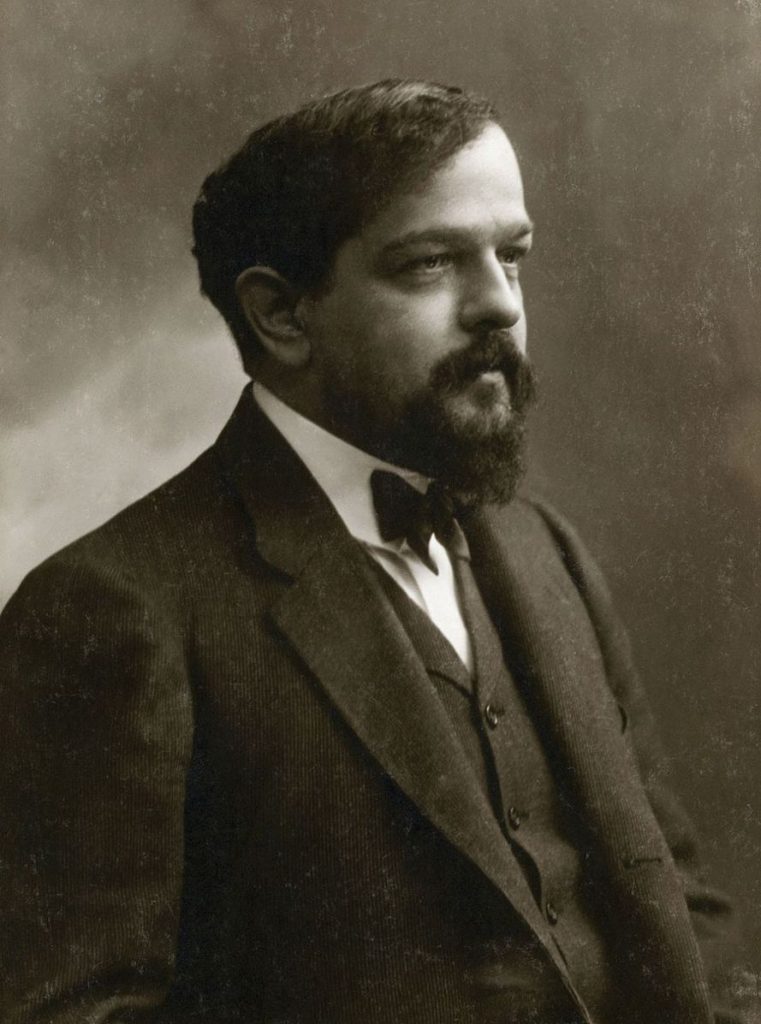
Claude Debussy is a French composer. (1862-1918)
Sometimes he is categorized as “Impressionist”. However, his unique mode of melody writing, diatonic organization, and unique harmony method different from functional harmony had a great influence on the music of the 20th century.
At the age of nine, he was taught basic of music by Verlaine’s mother-in-law.
He then entered the Paris Conservatory at the age of 10. Initially he wanted to be a pianist for he was also an extremely skilled pianist, which can be read from the score of “Il pleure dans Mon Coeur”.
After that, he gave up his career as a pianist and moved to an accompaniment class, where he began to compose at the same time.
He had been difficult and introverted since he was a student, which could cause problems.
He has repeatedly challenged the Prix de Rome (the gateway to French composition, held from 1663 to 1968). He also traveled to Russia and Italy, thanks to his supporters, looking for his own expression.
After that, he became the only musician to attend the home salon of the symbolist poet Stephane Mallarmé.
“Il pleure dans Mon Coeur” is the second song of the songbook “Forgotten Songs” and was completed in Paris in March 1887.
Music commentary
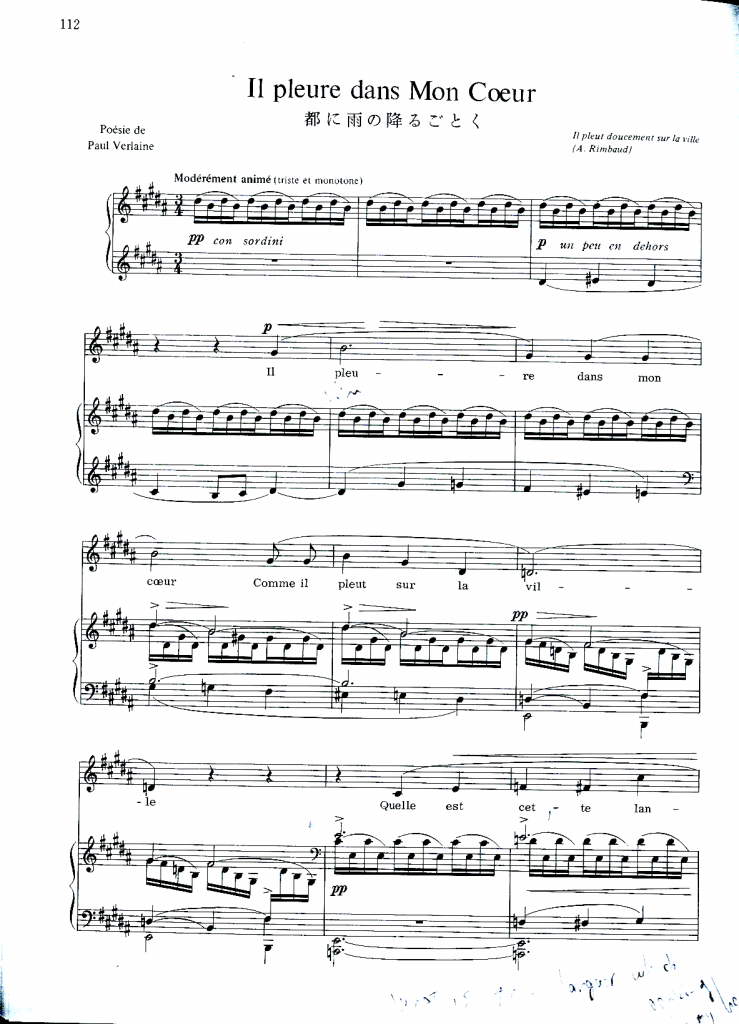
Sixteenth notes express the unstoppable rain in all songs. The theme which is repeated many times during the song emerges from under the sixteenth note tremolo. Like the rising fog of a rainy city.
Designations by “piano” and “pianissimo” are scattered everywhere, and when playing, a fairly delicate expression is required.
This song is written with extremely precise technique. For example A structure that gives the impression that the rain falling on a gloomy city and the heart dominated by sadness overlap, and there is a movement of the voices that gives the listener an image that directs the viewpoint from the ground to the sky in response to the rain falling from above.
When listening to this song, it seems that the image of the rainy city and the person who sinks in sadness comes to mind. When reading the music, it made me feel like I was watching a short movie.
Il pleure dans mon coeur
Comme il pleut sur la ville;
Quelle est cette langueur
Que pénètre mon cœur?
O bruit doux de la pluie
Par terre et sur les toits!
Pour un coeur qui s’ennuie,
O le bruit de la pluie!
[Meaning in English]
It rains on my heart.
As it fall on the city.
What is this languish,
which is eroding my heart
Oh, soft noise of the rain!
From on the ground and on the roof!
For my heart is depressed…
Oh, the noise of the raining!
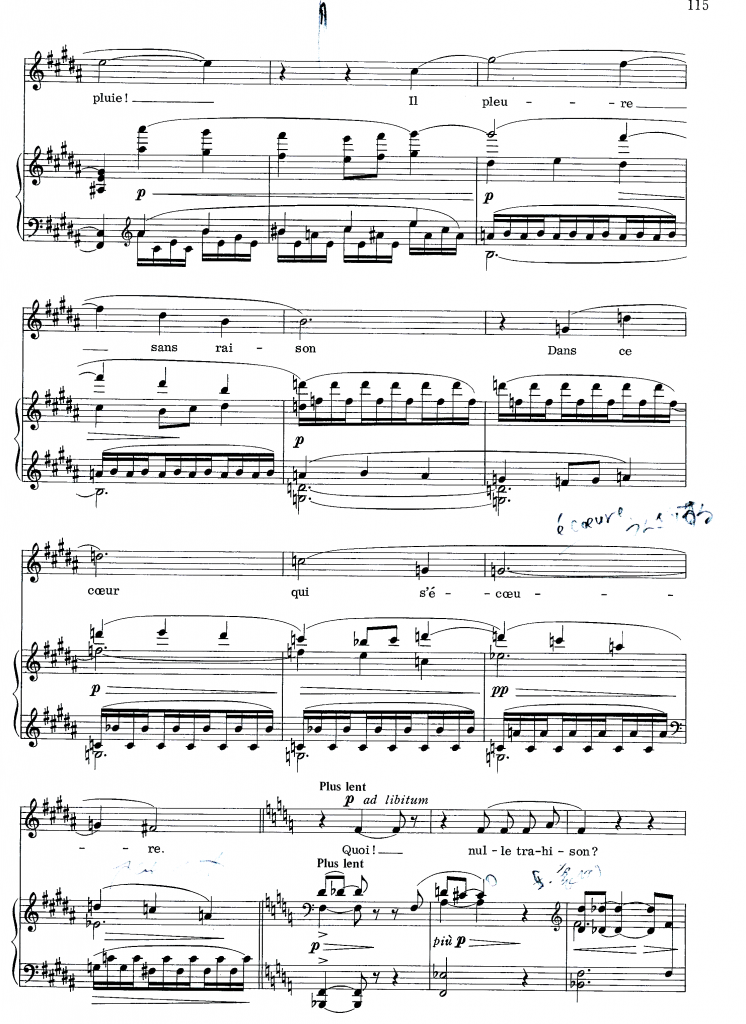
In the third ream, it is sung that “tears flow for no reason.”
But I think it’s like, “He really knows why.” And the structure of this song may cleary show it.
The part where it appears is that designated as “Plus lent”.
In this part, it sounds as if the words in his heart are coming to the fore, pushing away the sound of rain. (cf. Bottom of sheet music)
It’s a little creepy and beautiful.
Anyway, “he” may not be in a normal state of mind. Does his condition come from where he doesn’t want to admit that he has lost something? Or does it come from the fact that he doesn’t want to face any of his sin?
Il pleure sans raison
Dans ce coeur qui s’écoeure.
Quoi! nul trahison?…
Ce deuil est sans raison.
C’est bien la pire peine
De ne savoir pourquoi,
Sans amour et sans haine,
Mon coeur a tant de peine!
[Meaning in English]
The tears overflow for no reason
in my sickening heart
Why? There is no betrayal.
This pain is without reason.
This is the worst pain,
for do not know why I’m sick of it.
There it is not with love nor hate.
Just the pain fill my heart.
Where can you listen this song?
This thrilling song can be heard in the first part of the concert “Midsummer Concert -In the Shade of Poetry-” at the Hikarigaoka Museum of Art on Sunday, July 25th.
You can also watch ondemand movie on “Peatix”
Peatix’s event Page is here!(Open with new tab)
The soprano is singer Eriko Iida and pianist Yunosuke Takahashi. In the second part, we will invite Erhu player Takushi Teraoka to form a trio.
It is a program that makes you feel refreshed in the middle of summer. Please come and hear by all means!

